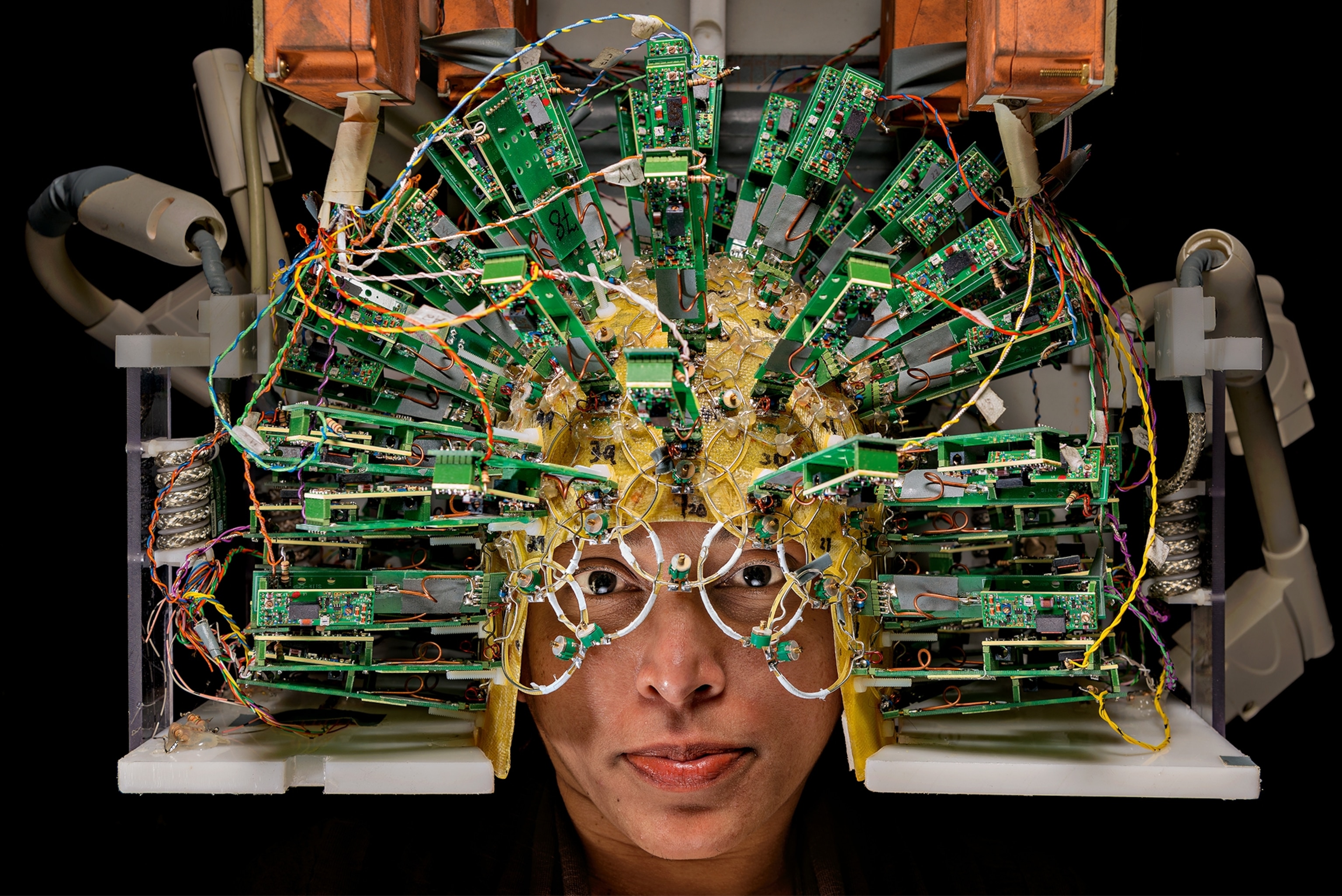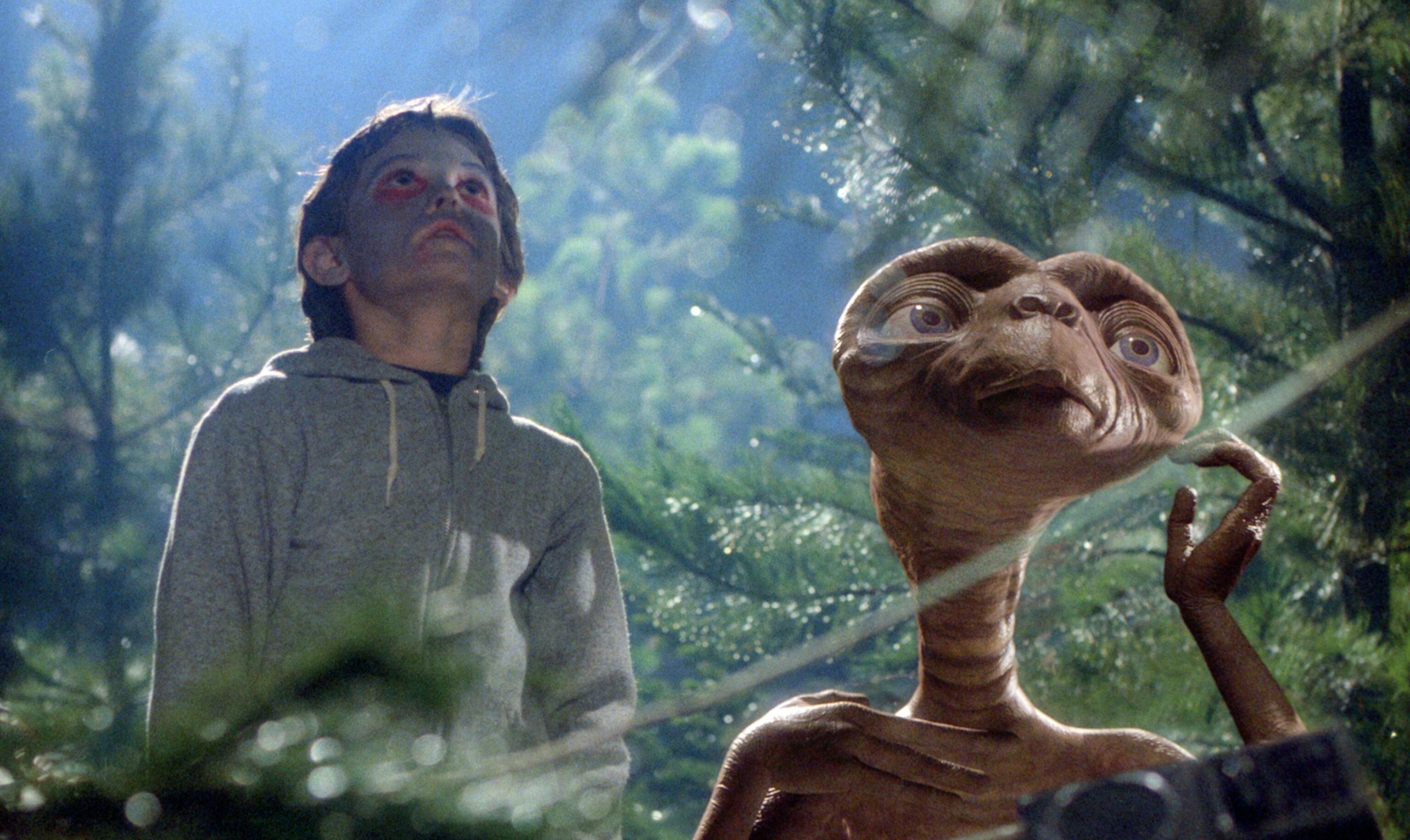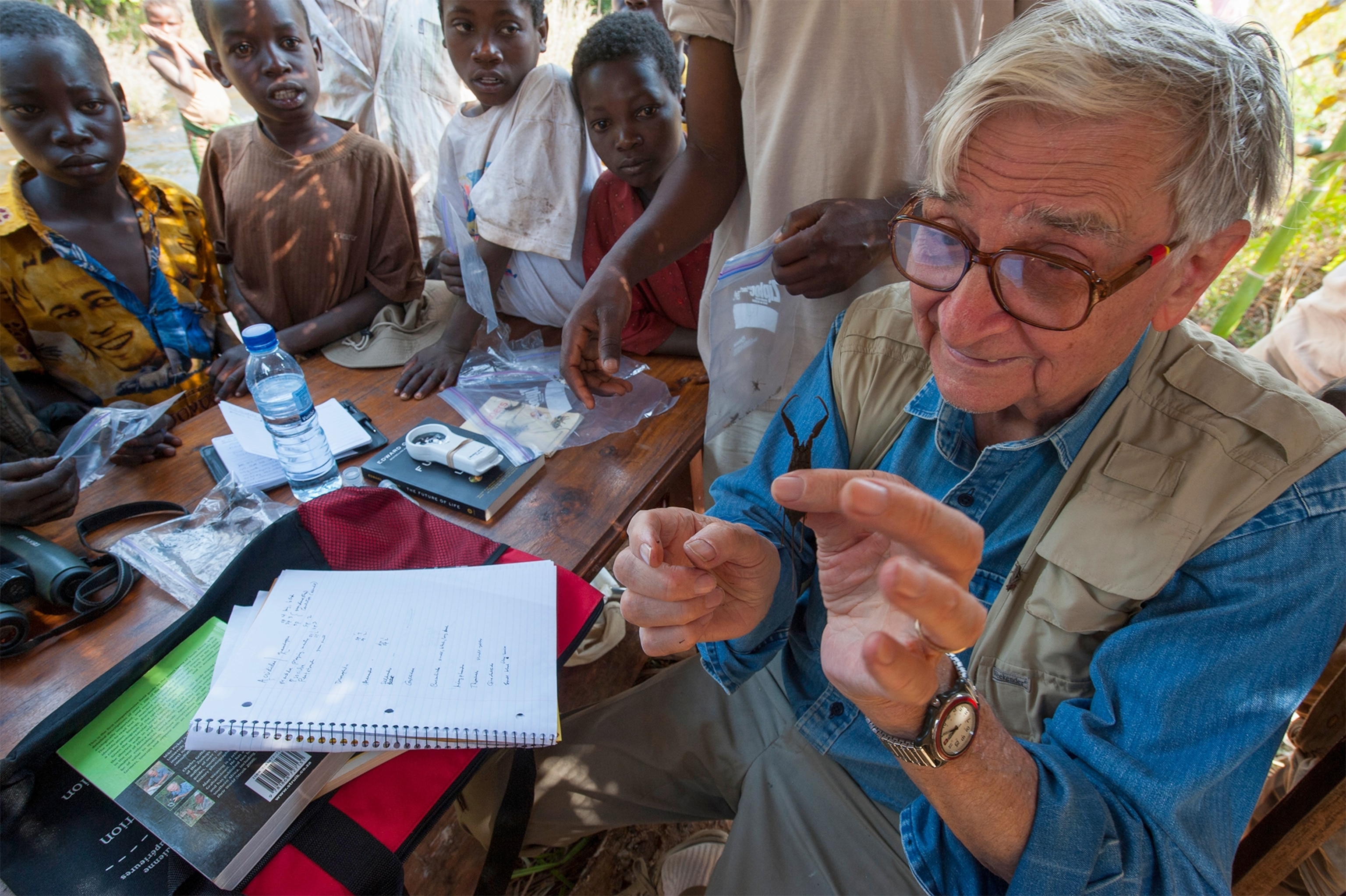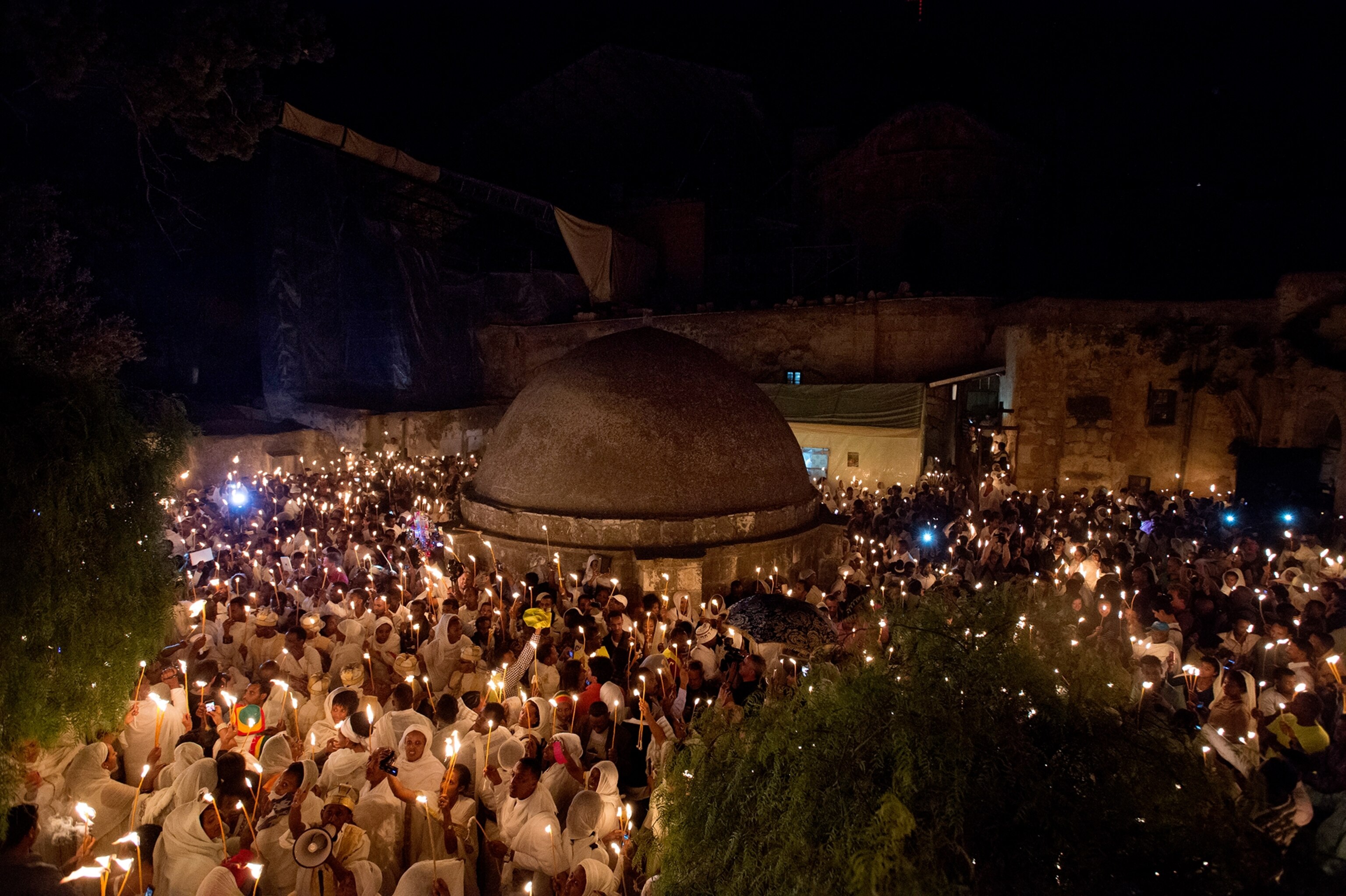
Book Talk: E. O. Wilson's Bold Vision for Saving the World
When we see how badly we're destabilizing the world, Wilson says, we'll turn to reason.
Edward O. Wilson has been called the heir of Darwin. His relationship to National Geographic stretches back to 1939, when, as a ten-year-old boy, he read about insects in the magazine and made up his mind to be an entomologist. Last year, at the age of 84, he was awarded the National Geographic Society's highest award, the Hubbard Medal.
In his new book, The Meaning of Human Existence, he ranges far and wide across biology, artificial intelligence, and philosophy. Speaking from his home near Boston, the evolutionary biologist, conservationist, and prolific author explains why storytelling and the humanities—not science—are what makes us unique, what ET might look like, how the "half-Earth" concept could save the planet, and why he wants to have dinner with the pope.
The meaning of existence has vexed philosophers and theologians for millennia. You approached the conundrum as a biologist. What is the key to human life?
The key to human life and the explanation for our existence, and thus the meaning, is not just the biology. We are, after all, a biological species in a biological world. We all have an organism and structure, which clearly has a long and convoluted ancestry.
So I would suggest that we're finally approaching the great issues of philosophy and religion that have been largely abandoned by philosophy and religion. Where do we come from? What are we? Where are we going?
It's time for a new approach, and I'd like to suggest there are five disciplines that are best consulted to renew the quest for this grail. These are evolutionary biology, which tracks the history of a particular species through evolutionary time; archaeology, which grades into paleontology and is crucial in the new interpretation; then of course the current boomtown of science, which is brain science. The search for the key mechanisms of the brain, the subconscious centers of decision-making, the architecture of emotional response, are all vital to coming to an answer that will be lasting.
Then I add two more, which may come as a surprise to some readers: artificial intelligence and—the last in my little list of five vital disciplines coming together to answer the big questions—robotics.
You've devoted your life to science, yet you say in the book that the humanities are the true markers of our humanity. Why is Shakespeare more important than Einstein?
[Laughs.] He's certainly not more important. What I meant to say was that what will be of enduring interest, because it's going to be unique and continuous in its creativity, is the humanities and in particular the creative arts. I realize that may sound strange, because, after all, scientific knowledge is still doubling every 10 to 20 years, carried forward by the immensity of the digital age and the hyperconnectivity of all disciplines and the people within them.
But suppose there were aliens, and they sent in their robots maybe 200 to 300 years from now, which is not even an eyeblink in the geological history of the Earth. And they begin to study surreptitiously what we're up to. What would they be interested in? Not our science.
Whereas the human species originated only about 200,000 to 300,000 years ago, their own civilizations could have originated a million or even a hundred million years ago, when dinosaurs were on Earth. They've had all this time to perfect the generalities of the physical science, and probably biological science too. So what would they be interested in?
They'd be interested in the humanities. How the human mind and emotions work, and what the history of the achievements of that particular organ have been over the brief history of this planet. The humanities are like the soul of humanity, the thing we produced that is probably absolutely unique in the universe. The creativity of humanity is guaranteed in the humanities. It is not guaranteed in the sciences. I realize I'm beginning to slip off the cliff of science fiction here, but I hope I made my point.

You say that we were created not by a supernatural intelligence but by chance and necessity. This puts you at odds with most of the world's religions. Why are they wrong?
They're very wrong.
And it's urgently the time to enter into frank discussion over why they're wrong. But we don't generally allow it to be discussed, because too many people would be offended. Let me make this point, though. There's already a neurobiology of religion and religious belief in the scientific realm. What are the genetics and evolutionary origins of religion, and exactly why is it a certain form?
I think when we get deep enough, we're going to see that humanity shares a predilection for certain big questions accompanied by deep emotional responses, which are biological in origin. I would call them theological, or transcendent, concerns common to human beings everywhere. Is there a supreme being who created us and guides us in some manner? Will we have an afterlife? These are the big questions.
But there's also the creation myth. And where I would call the transcendent forms of religion authentic and typical of human beings, I would call the individual beliefs, or faith, as coming from an entirely different origin. The faith of organized religions, hundreds of them, consist substantially of the creation myth that they champion.
And without exception, they're convinced that the creation myth and supernatural stories of their faith are superior to all others, no matter how gentle, no matter how generous or caring a particular faith is. It is the holder of the truth.
Why is this the case? Because people have ingrained in them, genetically, a tendency to believe stories that unite their group, define their group, and allow them to flourish within the power sphere of that group. And this is the simple, straightforward origin of religious faith.
You're a self-confessed lover of sci-fi and zombie movies. And in this new book you stray into very unscientific territory: You speculate about the existence of extraterrestrial life. Do you believe there is life out there in the cosmos? If so, what will E.T. look like?
I've spent a lot of time studying the traits of animals and animal behavior changing through time. Looking at how these different lines of animals evolved, especially as they gained in size, I noticed that there were certain traits they all possessed. So if there are—and I believe there have to be—planets out there that evolved highly intelligent, social societies, they probably followed the same generalities that have consistently held in the origin of highly organized social life on this planet. So that's allowed me to predict some of their traits. [Laughs.] I guess you'd like to know what those are.

Perhaps we shouldn't give it away, so people will go buy the book. [Laughs.]
Oh, I didn't mean that. I just meant that E.T. would almost certainly have a number of traits that are humanlike. They won't look like humans. But they will have basic traits of behavior and anatomy that are at least broadly consistent with humans.
You were quoted in National Geographic in 2002 saying that a bottleneck of overconsumption and poverty could lead to the extinction of half Earth's species this century. You return to the theme in this book. Can the living world be saved, and if so, how?
I do have an idea, which I share with a number of other ecologists. It's called the half-Earth concept. This has to do with giving vastly more surface of the Earth to the rest of the world, the living world. Of course when you say that, people immediately say it's impossible, it's not what we want to do, it's not what we should even think about doing, that's not right.
But the basic argument is that we, as I mentioned earlier, are biological creatures living in a biological world. We're just one species, but we're covering the entire planet with ourselves and our artifacts and activities. As a result we're systematically eliminating a large part of the remaining species.
Half of them by the end of the century could be extinct or on the brink of extinction. Based on estimates made with fossil species and what we know about ongoing declines, that's about a thousand times faster than before humans arrived on the scene. So this is a serious problem for the estimated eight million species that constitute the living world—which we're tearing up.
And we really should be considering the moral implications of what we're doing. What kind of a species are we that we treat the rest of life so cheaply? There are those who think that's the destiny of Earth: We arrived, we're humanizing the Earth, and it will be the destiny of Earth for us to wipe humans out and most of the rest of biodiversity. But I think the great majority of thoughtful people consider that a morally wrong position to take, and a very dangerous one.

Now we come to the solution, which I'm developing fully in a book that will come out toward the end of the year. I'm not trying to sell the book. I just wanted to say that, yes, this has matured to the point where it can be presented systematically. Simply put, half to us, half to the other eight million species. Of course you'll say, Oh, but that's impossible! We're still increasing in numbers. We're breeding and multiplying—that's human nature, and we're not going to stop it.
According to United Nations estimates, the population will peak at about ten billion by the end of the century and then begin to come down. There are also reasons to argue that the digital age, and the spearpoints of industry and the economy, indicate that the amount of space needed by each human is going to shrink a great deal. This will free up territory for the other species.
The way it could be done is to take the remaining wildernesses of the world, on both land and sea, and set those aside as inviolate, while we go on with our chaotic and unpredictable, destructive future. Safeguard the rest of life until we settle down.
The big task is to settle down before we wreck the planet. There are large enough sections of wilderness or near wilderness, and there are procedures for protecting them that can work. This is especially true of the sea. Deep, blue-water reserves, along with the coastal shore waters, can easily be divided into inviolate areas. Marine ecologists believe that endangered species would then multiply back rather quickly. This is practicable. And I think we should at least start seriously considering it as an alternative. (Related: "The Rebirth of Gorongosa.")
As a storyteller myself, I was particularly fascinated in one thing you suggest—that we're "the stories stored in our brains." Why was storytelling such an important part of the evolutionary process?
[Coughs.] There are so many frogs going extinct in the world, and I can't get rid of the one in my throat. [Laughs.] At any rate, yes, human beings live by stories. That's what we do. We think stories, we track our own histories, we make decisions about the future on the basis of competing stories. If I do this, then that will happen. On the other hand, if I do that, this story will unfold. And so on.
However the brain scientists work out its architecture—there's a big debate going on whether the brain has analog or digital operations—I think it will become clear that the human mind operates by stories based upon experiences and imaginary experiences, summoned from the great storage area of the brain. Which, of course, is the cerebrum.

If you could have dinner with anyone, living or dead, who would it be and why?
I'm often asked that question. [Laughs.] And it's definitely not Darwin! I would have to waste weeks, even months, bringing him up to speed. What would Darwin know about molecular genetics or particulate heredity? It would be biology 101. By the time I'd finished, I'd be exhausted. And what could he tell me? I've already read everything he knew.
No, the person I'd like to have dinner with is Pope Francis I. This is a man right now who appears to be struggling to bring the church, his faith, into the modern era. He has, to a remarkable degree, caught on more than most laypeople—and some scientists—to the urgency of the problem of conservation.
In a recent statement—I think I'm quoting him right—he said that every species and every pond is precious in the sight of the Lord. I love to hear that. He also recently said that evolution and the big bang theory are real. So there would be a commonality.
I would stay off the subject of religion. He might understand quite clearly what I was suggesting about the nature of faith and its origins. But it would be great to talk to him about the moral origins of global conservation and what can be done to influence the world's political leaders to make this part of their agenda.
I have a favorite saying by Abba Eban, the foreign minister of Israel during the '68 war with Egypt. In the midst of all that madness, he said: "When all else fails, men turn to reason."
I'm optimistic about the future for that reason. It's going to continue failing. But when waters lap over downtown Miami and the species counts plummet to the point that they can't be ignored anymore, when we see how badly we are destabilizing the world, then I think we'll turn to reason. And with reason, we can solve these problems. There are, after all, the better angels of our nature. And working with young people especially, I have found that we're capable of turning to those better angels with surprising ease.
Simon Worrall curates Book Talk. Follow him on Twitter or at simonworrallauthor.com.